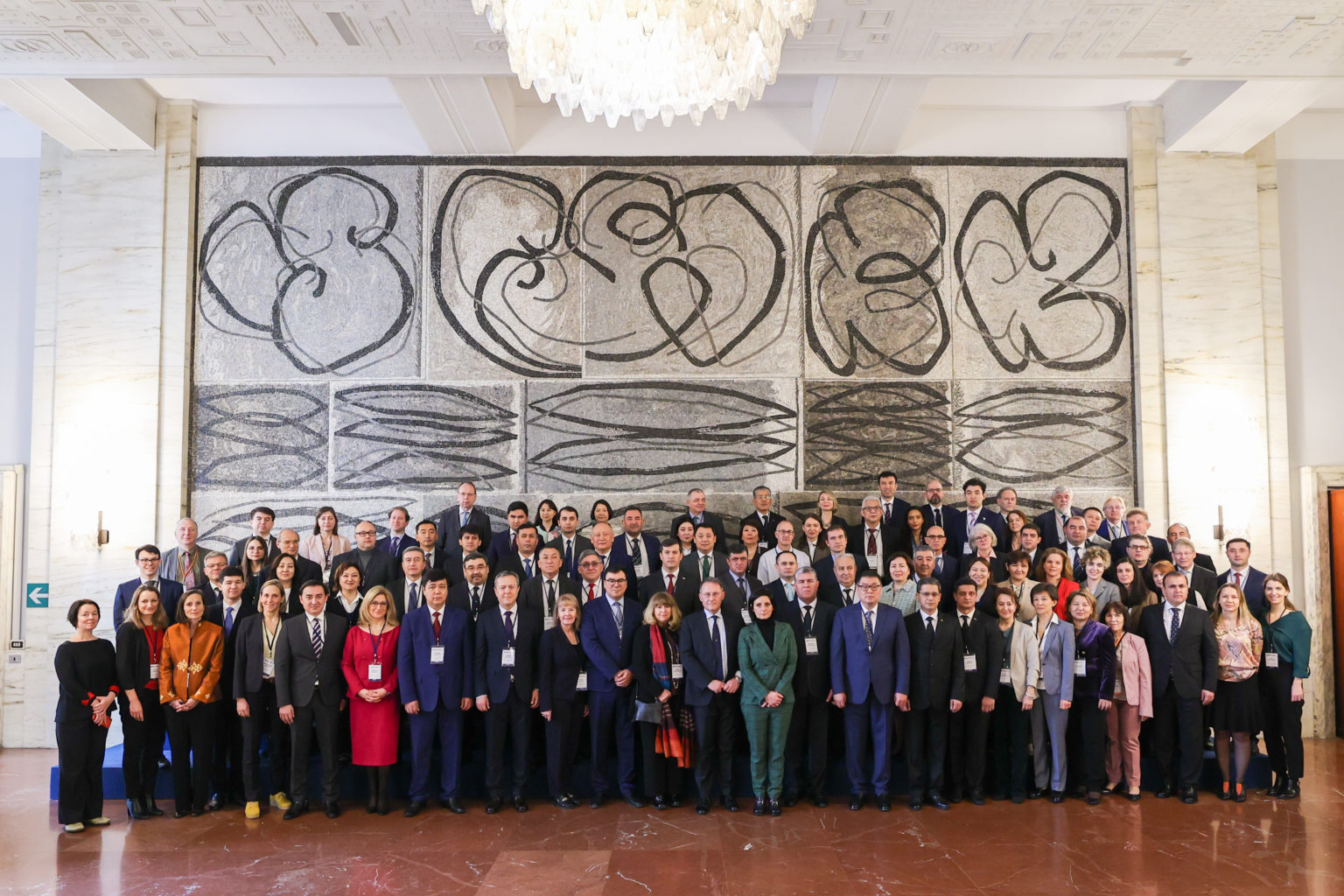ASTANA – Rome hosted the seventh European Union – Central Asia High-Level Conference on Environment and Water Cooperation on Feb. 23-24 under the auspices of the EU-Central Asia Platform for Environment and Water Cooperation, reported the platform’s press service.

7th EU–Central Asia High-Level Conference participants. Photo credit: wecoop.eu.
More than 100 delegates attended the conference, including ministers, deputy ministers, high-level Central Asian and EU diplomats, representatives of international financial institutions, international and regional organizations, and civil society involved in the development, management and implementation of environment, climate change and water policies.
They discussed strategic and pragmatic issues related to water, environment, climate change and sustainable growth in Central Asia and stressed the challenges to accelerating the green transition and facilitating further green investments.
EU Special Representative for Central Asia Terhi Hakala noted the conference was intended to sum up the intermediate results of the two-year joint work of the EU and Central Asia on the environment, climate change, and water resources.
“In November 2022, the EU launched the Global Gateway Team Europe Initiative on Water, Energy and Climate Change in Central Asia. This flagship initiative, which brings together member states and European financial institutions, aims to support regional cooperation and governance for sustainable development and to increase investment in a regionally integrated blue and green transition,” she said.
The participants also agreed to work together to implement the Paris Agreement and strengthen efforts towards achieving climate neutrality, continue high-level dialogue and cooperation to tackle the severe challenges and growing threats to the environment posed by climate change and biodiversity loss, encourage and support regional, transboundary and international cooperation on integrated water resources management.
The sides also reviewed the results of the platform’s activities since the previous high-level conference in Tashkent in 2019, discussed the platform’s priorities for 2023-2025, and agreed on practical steps to enhance policy dialogue and capacity development in the field of environment, climate change and water in Central Asia.
Director for Green Diplomacy and Multilateralism in the European Commission’s Directorate General for Environment Astrid Schomaker noted that the work of the Central Asian platform for environment and water had become a lynchpin of the joint EU-Central Asia effort to tackle environmental, biodiversity, water and climate challenges.
“Central Asia is one of the regions that is most affected by these challenges and it is, therefore, more important than ever that we work together as partners towards building networks, trust and cooperation for the green transition, which will benefit us all ‒ Central Asia and the EU,” she said.
Central Asia Nexus Dialogue Project, a side event of the high-level conference, was also organized to discuss investment needs and opportunities for projects based on the connection between water, energy and food security.
“We are fully committed to supporting the green transition through viable investment projects to ensure long-term sustainability, peace and prosperity in the region,” said Johannes Baur, head of cooperation at the EU Delegation to Kazakhstan.
The next EU-Central Asia high-level conference is scheduled to take place in Kazakhstan in 2026.
